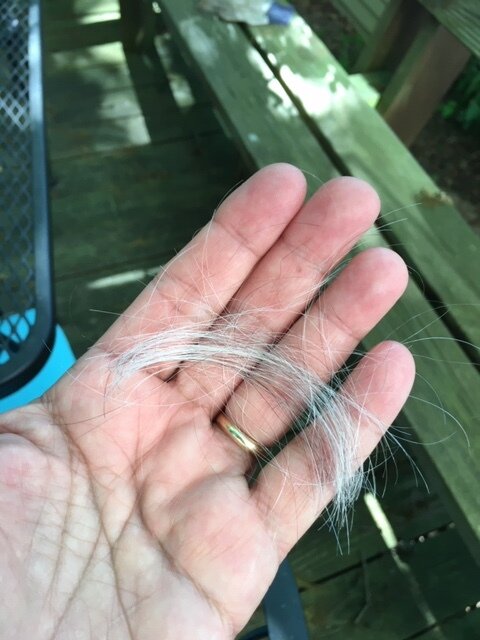Moments for Common Nourishment
I shaved my head this week.
As I turned my calendar over to June and the colors of “Pride” filled my wall, a handful of grey hair filled my hand. Many years ago, an anti-racism seminar led me to quit dying my hair and let its natural grey show. That seminar sent me to my knees and split open my heart. When I emerged I came out as queer and experienced the liberation of living authentically. The ground shifted under me; it has never stopped.
When I was a teenager, I used to play Melissa Manchester’s LP at top volume, screaming along with “Don’t Cry Out Loud” – “don’t cry out loud, just keep it inside, and learn how to hide your feelings.”
I loved this song.
Shit.
I was trained to hide my feelings, to stuff them, to ignore them.
To pretend I did. not. have. them.
In other words: I was taught to lie.
These lies run deep and wide for white women. I learned to be afraid; I learned not to trust my gut; I learned that the heart was not reliable.
“Love takes off the masks we fear we cannot live without and we know we cannot live within,” writes James Baldwin. What freedom I set loose when I took off the masks that covered my broken heart and let its exposed pain find a way to healing.
These are queerish times.
As sheltering-in-place has cancelled events across the world, created isolation, made vulnerable those most oppressed by the systems of injustice in our nation, the masks of “normal” have been ripped off, exposing the most glaring inequities.
With the Covid virus uncovering the virus of racism, the world’s pent-up stress watched the video virus of another murder of a Black man by a white cop and streets in 50 states from urban to rural have burst open with grief and rage. Protestors wear safety masks to curb contagion even as the violence of a militarized police system is unmasked.
When I hear white people reminisce about the “non-violent” protests of the civil rights era, I ask them about the police clubs, dogs, water hoses, and murder of 1967. When I hear queer white people wonder why there is “rioting,” I ask them about the Black trans women at Stonewall at the end of June in 1969, the date now claimed for “Pride.”
I visited the Detroit Institute of Arts a couple years ago to see the display about what happened in 1967. It began with a question for its viewers: what would you call this time – a riot, an uprising, rebellion, civil disobedience, insurrection, revolution? At the end of the installation, it asked the same question – what would you call it now? Statistics of DIA institute guests showed that those answers changed, that the understanding of an uprising in the face of discrimination, racism, and classism was a response to violence; what got called “riot” by the media and governmental powers was not where the destruction began.
Prophets insist that “returning to normal” is not the path forward: “normal” erases the wounds, the lies we’ve been told.
I embrace those prophetic words, for the future is queer – that is: strange, different; unknown – because so much is required to repair the world, repair our hearts, repair our systems that deny humanity and mask trauma.
My white ancestors did not know they told me lies, they did not know that hiding my feelings damaged them and me.
My queer ancestors taught me to examine the damage, to embrace ambiguity, to live into truth-telling and resilience.
And my Black church siblings taught me a new song. “I need you, you need me/we’re all a part of God’s body/you are important to me, I need you to survive/I won’t harm you with words from my mouth, I love you, I need you to survive.”
We need each other: to survive; to thrive; to make a new, true, world.
- Written by Rev. Lois McCullen Parr, co-founder of Justice Leaders Collaborative.
Originally posted on enfleshed.com


